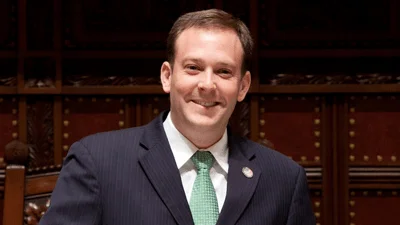The U.S. Department of Indian Affairs recently announced the expansion of the Tiwahe Initiative.
Two new Tribes are slated to be added in the Tiwahe Initiative Social Service Demonstration Program and 10 Tribes and Tribal Organizations are poised to receive $100,000 each to implement programs, according to a March 29 Indian Affairs news release. With the addition of the Confederated Salish and Kootenai Tribes in Montana and the Paiute Indian Tribe of Utah, the overall number of locations with Tiwahe programs now stands at eight.
“The Tiwahe Initiative works because it gives Tribes the freedom and flexibility to build programs that reflect the needs of their communities, while incorporating their own views, values and traditions,” Assistant Secretary for Indian Affairs Bryan Newland said in the release. “It is the job of the federal government to support Tribes’ work at the local level, by providing resources and working with them as a collaborative trustee to make lives better for people in Tribal communities.”
Tiwahe is celebrated as “an extensive and bold approach to furthering Indian self-determination and self- governance," according to the Indian Affairs website. Supporters point to the way it opens the door to more flexibility in the administration of key Tribal programs, supports Tribal economic self-sufficient and strengthens Tribal cultural connections.
Tiwahe is hailed as a way of being that “fosters systemic change in the delivery of services to children and families through the integration of Tribal practices, customs, values and traditions,” the website reported.
The six pilot Tribal sites were recently tabbed to take part in a five-year demonstration project are the Association of Village Council Presidents comprising 56 Alaska Native villages, Fort Belknap Indian Community of the Fort Belknap Reservation of Montana, Pascua Yaqui Tribe of Arizona, Red Lake Band of Chippewa Indians in Minnesota, Spirit Lake Tribe in North Dakota and the Ute Mountain Ute Tribe, according to the website.
The final Tiwahe report to Congress was transmitted to the House and Senate Appropriations Committees Dec. 28, 2021, with the final report encompassing the Tribal reports as submitted to IA, the website said.
Grounded in Tribal values and principles, Tiwahe guides the goals and objectives of a coordinated service delivery model among agencies and justice systems to increase access to family and social services; create alternatives to incarceration via solution-focused sentencing options, improve links to appropriate prevention, intervention and treatment opportunities; and improve case management services, according to the March 29 news release.
President Joe Biden proposed a budget that includes a $33.5 million increase for the Tiwahe Initiative, according to a March 9 news release.
"The 2024 budget request makes significant investments in Tribal sovereignty and revitalization, upholding our steadfast commitment to honor the nation’s treaty and trust responsibilities and strengthen government-to-government relationships with Tribal Nations," Newland said in the March 9 release. "This administration’s commitment to supporting the sovereignty of Tribal Nations and addressing long-standing disparities is unprecedented and will remain an important moment in our nation’s history."





